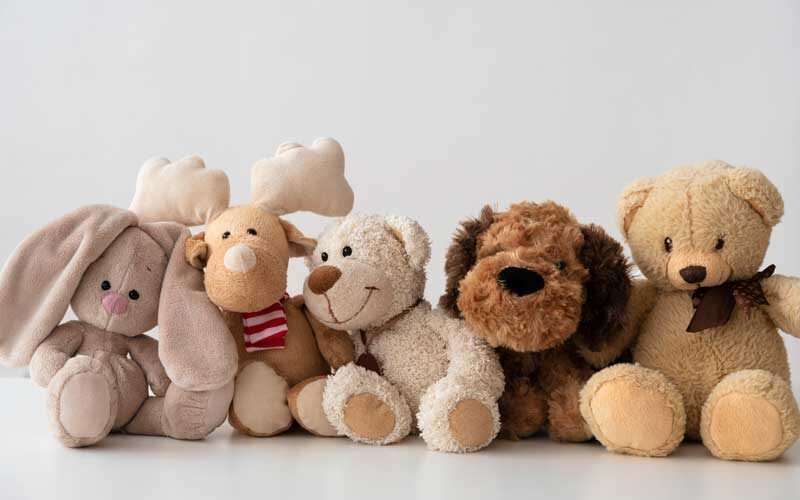Even as adults, people frequently develop emotional connections with stuffed animals and other inanimate objects. Research conducted on a sample of 6,000 British adults indicated that 35 percent admitted to sharing their beds with stuffed animals (Pappas, 2010). This highlights the fact that the comfort provided by stuffed animals extends beyond childhood and into adulthood, suggesting that they offer benefits that transcend age boundaries.
For adults, stuffed animals can serve as sources of comfort and nostalgia, providing reassurance and companionship during times of stress or loneliness. Additionally, they can evoke cherished memories from childhood, offering a sense of warmth and familiarity in the midst of life’s challenges. Furthermore, some adults may find solace in cuddling with stuffed animals as a way to unwind and relax after a long day, tapping into the soothing effects of tactile stimulation. Overall, the presence of stuffed animals can offer emotional support and comfort to adults, demonstrating their enduring significance throughout their lifespan.
Stuffed animals as therapeutic tools
Stuffed animals serve as therapeutic aids for adults, exerting a significant influence on their psychological well-being. Many individuals acknowledge maintaining childhood teddies or other plush companions into adulthood, finding solace and emotional security in these familiar objects. For numerous adults, embracing a stuffed animal for comfort serves as a form of self-care, effectively alleviating feelings of loneliness and anxiety. Moreover, beyond mere companionship, plush animals are utilized by adults to enhance sleep quality, with weighted varieties designed to provide a comforting pressure conducive to restful sleep. The utilization of such weighted plush toys not only contributes to improved sleep but also aids in the release of physical tension accumulated throughout the day.
Additionally, the therapeutic benefits of role-playing with stuffed animals extend beyond childhood, proving valuable for adults as well. Engaging in imaginative storytelling and creative play with plush companions offers a source of joy and mental stimulation in the lives of individuals. This underscores the versatility of stuffed animals as therapeutic tools, emphasizing their capacity to promote emotional well-being and foster creativity in individuals of all ages (Collins, 2023).
Stuffed animals and their sentimental value
Stuffed animals possess a profound sentimental value that surpasses their mere cuteness, as they embody unique characteristics that evoke memories and emotions. Particularly when gifted by someone special, such as a grandparent, a stuffed animal transforms into a symbol of comfort, nostalgia, and security. These plush companions often transcend their material form to become cherished family heirlooms, passing down through generations and encapsulating the memories and narratives of each owner. In some families, the tradition of bestowing a specific stuffed animal upon newborns symbolizes continuity, familial bonds, and the preservation of ancestral history.
Moreover, beyond childhood, stuffed animals retain their sentimental significance for adults, serving as poignant reminders of love and affection when gifted by loved ones. Each plush toy becomes a vessel of memories, capable of evoking the emotions and experiences associated with specific moments in life. For instance, a stuffed animal from a memorable trip holds the power to transport individuals back to that joyous occasion, offering solace and companionship during challenging times (Collins, 2023). Scientific studies have illuminated the depth of attachment individuals form with these toys, revealing that they are perceived as more than mere objects but rather as repositories of special feelings and memories. This understanding sheds light on the emotional distress individuals may experience at the thought of replacing these cherished childhood companions, underscoring how objects from one’s youth can retain profound importance well into adulthood (Pappas, 2010).
Conclusion
In conclusion, the relationship between adults and stuffed animals underscores their substantial influence on psychological well-being. These plush companions serve as vital tools for self-care, aiding in the management of loneliness and anxiety by imparting a sense of comfort and emotional security. Specifically designed weighted plush toys further enhance sleep quality, fostering relaxation and stress reduction during rest. Moreover, engaging in imaginative role-playing with stuffed animals offers adults a source of joy and creativity. Yet, beyond their practical utility, these toys hold profound sentimental value, symbolizing comfort, cherished memories, and affectionate connections. Serving as poignant reminders of significant life moments, these special companions encapsulate emotional experiences that resonate deeply with individuals. Thus, beyond their physical attributes, stuffed animals wield a profound emotional impact on adults, enriching their lives with comfort, nostalgia, and companionship.
References
Collins, M., 2023., Why Are Stuffed Animals Important — They’re More Than Just Toys. Available at: <https://babame.com/why-are-stuffed-animals-important/> [Accessed 21 January 2024].
Pappas, S., 2010., Even Grown-Ups Need Security Blankets. Available at: <https://www.livescience.com/8737-grown-ups-security-blankets.html> [Accessed 21 January 2024].
